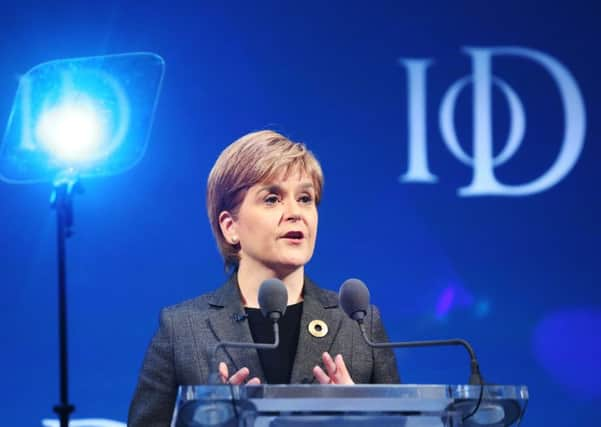Martin Flanagan: Nicola Sturgeon has few surprises for IoD
This article contains affiliate links. We may earn a small commission on items purchased through this article, but that does not affect our editorial judgement.


The ruling SNP had been making similar noises even before the Brexit vote that it no longer considered the 2014 Scottish independence referendum the once-in-a-generation event that Sturgeon’s predecessor Alex Salmond had once billed it as Labour’s blow-up north of the Border changed the game.
The difference now, as Sturgeon indicated to IoD members, is that there is more credibility for such an argument as the UK’s unexpected Brexit vote, while Scotland voted pretty overwhelmingly to stay in the EU, is a tangible disconnect.
Advertisement
Hide AdAdvertisement
Hide AdScotland very largely wants into the single European trading bloc; the UK wants out to try and reclaim control of its borders against freedom of movement, the latter an EU article of faith.
As the First Minister said, in the last indyref the Better Together camp’s main argument was that there was more economic certainty for Scotland in remaining in the UK due to the latter’s broad economic shoulders than in striking out alone on a wing and North Sea oil.
Post-Brexit, who can say if Britain has a clear skies economic future amid a potential lengthy and messy EU exit?
Even so, it is not that clearcut. A strong picture card for the Scottish independence campaign in 2014 was the financial strength from its share of North Sea reserves.
With the chronic downturn in the oil price in the past two years, that argument also has less “resonance”, to use Sturgeon’s phrase in another context.
And business? Organisations like the IoD, CBI, British Chambers of Commerce etc want as much access to the single market post-Brexit as they can get, and as little restriction on EU freedom of movement as possible in order not to clip their wings in terms of hiring.
However, any common cause between business and Holyrood may be ambivalent as they both generally agree on the broad European picture, but diverge pretty markedly in terms of any support for a new Scottish referendum.
